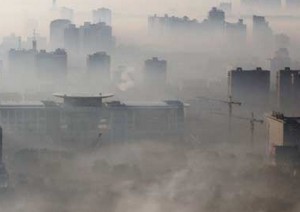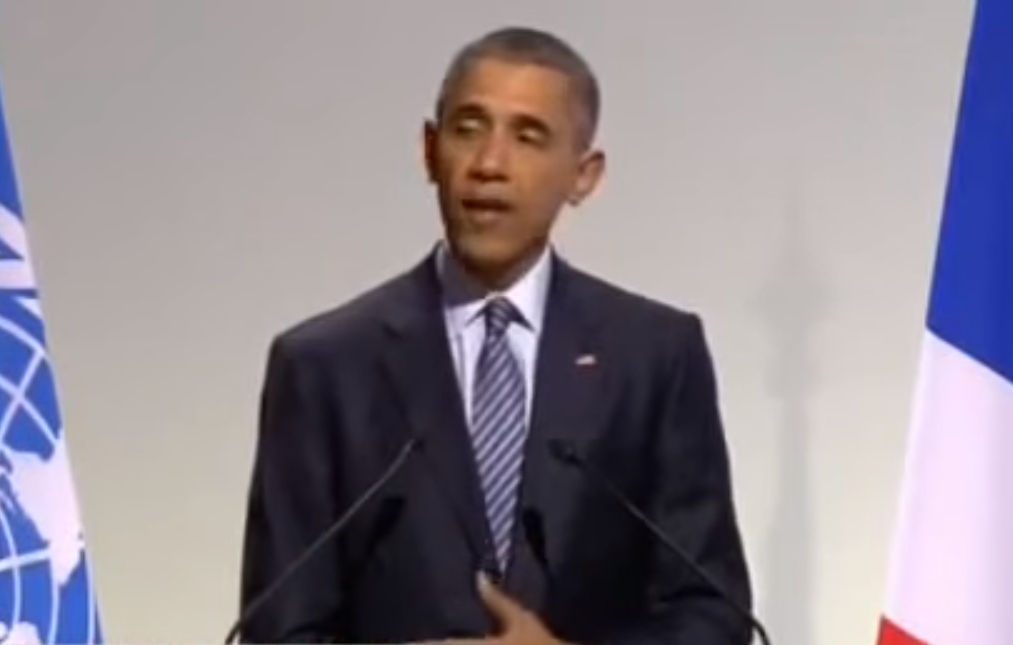 LONDON—China’s greenhouse gas emissions likely will decline faster than previously thought, according to a new report. The authors say that means the world could prevent global warming exceeding U.N. targets. It follows optimism at the recent G7 summit that a comprehensive global climate change agreement could be signed this year.
LONDON—China’s greenhouse gas emissions likely will decline faster than previously thought, according to a new report. The authors say that means the world could prevent global warming exceeding U.N. targets. It follows optimism at the recent G7 summit that a comprehensive global climate change agreement could be signed this year.
The images of workers and schoolchildren wearing face masks, struggling through the smog that regularly chokes China’s cities have become a familiar sight. Things are slowly changing, however, according to the report.
The country’s greenhouse gas emissions probably will peak in 2025 – five years earlier than President Xi Jinping’s stated target of 2030.
Falling coal use
It’s partly down to changes in the way China is fueling its economic growth, said Fergus Green, co-author of the report from the London School of Economics.
“What we’ve seen in the last year or so is that China’s coal use has started to fall,” said Green. “We think that over the next five years we’ll probably see coal use plateau. It could keep declining, but it will probably plateau. And then in the first half of the 2020s, it will start to decline more strongly.”
That decline is being driven by slow changes to China’s $17.6 trillion economy.
“Growth is slowing from dizzying heights of double-digit figures for many, many years. And the composition of that growth is changing away from heavy industry type investment towards investment in services and more innovative high-tech manufacturing,” said Green. “A very important one is change in China’s energy supply, away from coal toward non-coal sources like renewable energy, and also gas and nuclear.”
Green said the changes in China mean it is increasingly likely the world will avoid global warming of more than 2 degrees Celsius above pre-industrial levels – the upper limit targeted by the United Nations.
Nearing agreement
The U.N. hopes to enshrine that benchmark in a new global climate change deal to be hammered out in Paris in December. Speaking after the G-7 meeting Monday in Elmau, Germany, President Barack Obama said progress had been made toward a strong climate agreement.
“All the G-7 countries have now put forward our post 2020 targets for reducing carbon emissions and will continue to urge other significant emitters to do so, as well,” he said. “We’ll continue to meet our climate finance commitments to help developing countries to transition to low-carbon growth.”
The G-7 leaders agreed the world should phase out the use of fossil fuels by the end of this century.
Martin Kaiser, head of international climate politics at Greenpeace, welcomed the tone at the G-7.
“Elmau has delivered. With the decisions on climate change, the vision of a 100 percent renewable energy supply has got contour,” he said. “Elmau has also given a clear signal that by the mid-century you have to phase out coal and oil, out of the energy system.”
Six months ahead of the Paris meeting there is optimism over the level of agreement. Environmentalists say the leaders of the world’s industrialized countries, though, must match their positive commitments with action to tackle emissions and help to pay for a de-carbonized global economy.







